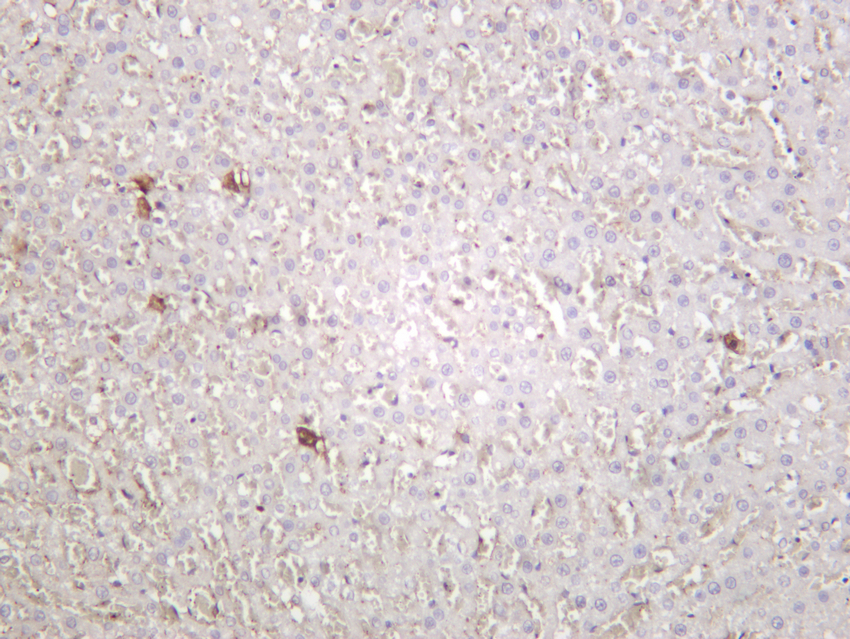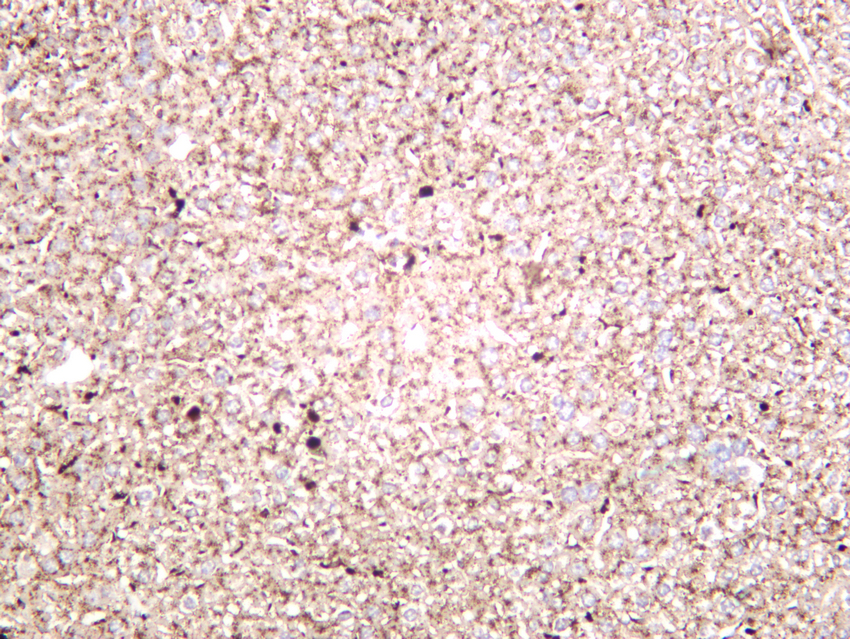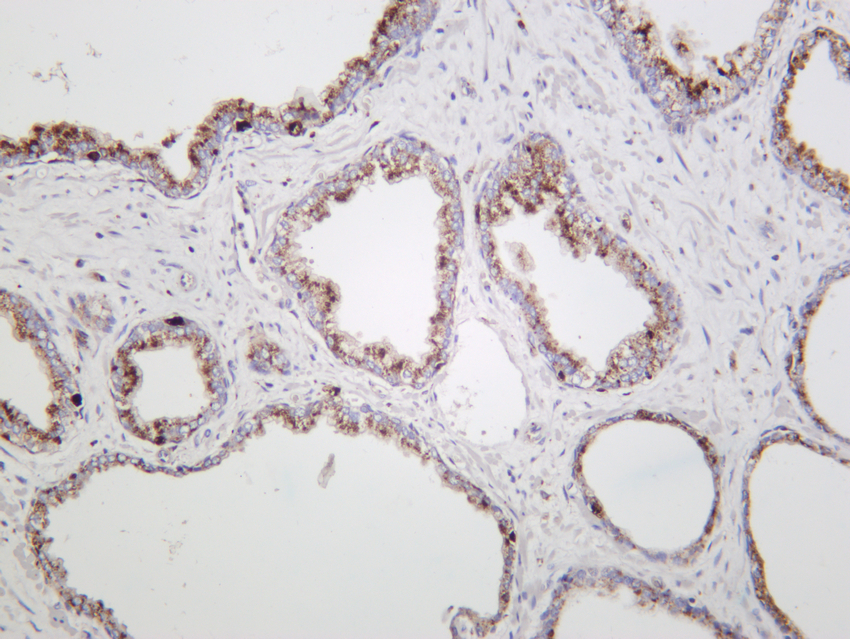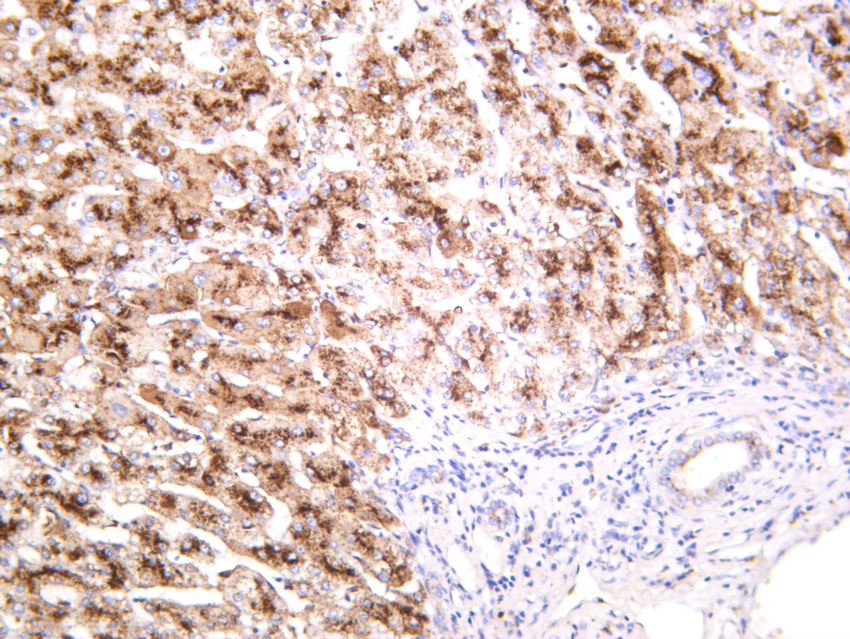Cathepsin D (PT0185R) PT® Rabbit mAb
- 货号:YM8115
- 应用:WB;IHC;IF;IP;ELISA
- 种属:Human; Mouse; Rat;
- 靶点:
- Cathepsin D
- 简介:
- >>Sphingolipid signaling pathway;>>Autophagy - animal;>>Lysosome;>>Apoptosis;>>Estrogen signaling pathway;>>Tuberculosis;>>Diabetic cardiomyopathy
- 基因名称:
- CTSD
- 蛋白名称:
- Cathepsin D
- Human Gene Id:
- 1509
- Human Swiss Prot No:
- P07339
- Mouse Gene Id:
- 13033
- Mouse Swiss Prot No:
- P18242
- 特异性:
- endogenous
- 组成:
- PBS, 50% glycerol, 0.05% Proclin 300, 0.05%BSA
- 来源:
- Monoclonal, rabbit, IgG, Kappa
- 稀释:
- IHC 1:200-1:1000,WB 1:1000-1:5000,IF 1:200-1:1000,ELISA 1:5000-1:20000,IP 1:50-1:200,
- 纯化工艺:
- Protein A
- 储存:
- -15°C to -25°C/1 year(Do not lower than -25°C)
- 其他名称:
- CTSD;CPSD;Cathepsin D
- 分子量:
- 44kD
- 实测条带:
- 30kD
- 背景:
- This gene encodes a member of the A1 family of peptidases. The encoded preproprotein is proteolytically processed to generate multiple protein products. These products include the cathepsin D light and heavy chains, which heterodimerize to form the mature enzyme. This enzyme exhibits pepsin-like activity and plays a role in protein turnover and in the proteolytic activation of hormones and growth factors. Mutations in this gene play a causal role in neuronal ceroid lipofuscinosis-10 and may be involved in the pathogenesis of several other diseases, including breast cancer and possibly Alzheimer's disease. [provided by RefSeq, Nov 2015],
- 功能:
- catalytic activity:Specificity similar to, but narrower than, that of pepsin A. Does not cleave the 4-Gln-|-His-5 bond in B chain of insulin.,disease:Defects in CTSD are the cause of neuronal ceroid lipofuscinosis 10 (CLN10) [MIM:610127]; also known as neuronal ceroid lipofuscinosis due to cathepsin D deficiency. The neuronal ceroid lipofuscinosis are a group of progressive neurodegenerative diseases in children and in adults, characterized by visual and mental decline, motor disturbance, epilepsy and behavioral changes.,function:Acid protease active in intracellular protein breakdown. Involved in the pathogenesis of several diseases such as breast cancer and possibly Alzheimer disease.,polymorphism:The Val-58 allele is significantly overrepresented in demented patients (11.8%) compared with non-demented controls (4.9%). Carriers of the Val-58 allele have a 3.1-fold increased risk for de
- 细胞定位:
- Secreted
- 组织表达:
- Expressed in the aorta extracellular space (at protein level) (PubMed:20551380). Expressed in liver (at protein level) (PubMed:1426530).
- June 19-2018
- WESTERN IMMUNOBLOTTING PROTOCOL
- June 19-2018
- IMMUNOHISTOCHEMISTRY-PARAFFIN PROTOCOL
- June 19-2018
- IMMUNOFLUORESCENCE PROTOCOL
- September 08-2020
- FLOW-CYTOMEYRT-PROTOCOL
- May 20-2022
- Cell-Based ELISA│解您多样本WB检测之困扰
- July 13-2018
- CELL-BASED-ELISA-PROTOCOL-FOR-ACETYL-PROTEIN
- July 13-2018
- CELL-BASED-ELISA-PROTOCOL-FOR-PHOSPHO-PROTEIN
- July 13-2018
- Antibody-FAQs
- 产品图片

- Various whole cell lysates were separated by 4-20% SDS-PAGE, and the membrane was blotted with anti-Cathepsin D (PT0185R) antibody. The HRP-conjugated Goat anti-Rabbit IgG(H + L) antibody was used to detect the antibody. Lane 1: A431 Lane 2: MCF7 Predicted band size: 44kDa Observed band size: 30kDa

- Rat liver was stained with anti-Cathepsin D (PT0185R) rabbit antibody

- Mouse liver was stained with anti-Cathepsin D (PT0185R) rabbit antibody

- Human prostate was stained with anti-Cathepsin D (PT0185R) rabbit antibody

- Human liver was stained with anti-Cathepsin D (PT0185R) rabbit antibody



